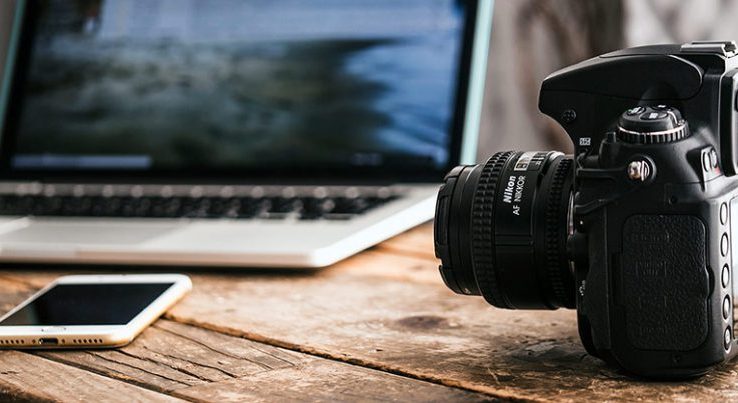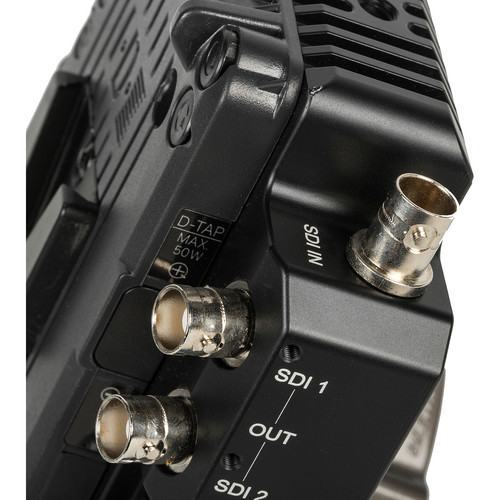
Our Epiphan office uses a mirrorless cameras ourselves—we like it for its versatility, small size (i.e. Portability) and 4K video live streaming/recording abilities. Mirrorless cameras also generally cost slightly less than DSLRs. Get your stream on. Epiphan Video has everything you need for live streaming and video capture, even from space! We make rock solid, professional video switchers, digital video recorders, screen recorders, PTZ cameras.
Epiphan Pearl Mini + PTZOptics Setup
By Oliver R
Very excited to be working with Epiphan Video to tighten our product integrations!
In this video, we will be testing out the compatibility between PTZOptics SDI and USB cameras models with the Epiphan Pearl Mini. The Epiphan Pearl Mini is an all-in-one video production system ideal for lecture capture and small live events. This compact unit is only 10 inches wide and less than 4 pounds. The Pearl Mini features a sleek 7” inch touch screen you can use for control of the unit, with the ability to record and live stream engaging videos with multiple video and audio sources.
So let’s get started setting up this unit to discover some of the possibilities of connecting a PTZOptics camera via USB, SDI, HDMI and RTSP streaming to get our video feeds into the Pearl Mini. Let’s start by unboxing the Epiphan Pearl Mini. Let’s go ahead and plug the unit into power, and connect it to our local area network. We can also insert the included SD card that we will use for storage of our recorded video files, Epiphan recommends a minimum size of 64gb. Class 10 or U3 cards.
Epiphan Dvi2usb3
Gpt drive windows. Once the unit is connected to our network we can log in to the management page to start setting up our layouts. But first, let’s set up our video and audio sources.

For most lecture capture scenarios, we want to capture one camera and one presentation feed. For our camera input, we have multiple options. For long cable runs, we highly suggest using 3G-SDI, which can be run up to 300 feet and features professional locking connectors. You will notice that the PTZOptics SDI cameras feature both HDMI and SDI video outputs. Let’s go ahead and connect the camera via HDMI and assume the camera is located within 25’ of the Pearl Mini. We can then use the second HDMI input for our PowerPoint presentation.
When you connect your laptop to the HDMI input you can decide to set up your display settings to extend your desktop or mirror the main display. Either way, the Pearl Mini will now be able to see your computer’s output and the camera feed from our PTZOptics camera. It’s worth noting that you can also use the USB 3.0 inputs for cameras. Therefore you could plug in a PTZOptics USB 3.0 camera into this port, or the new PTZOptics USB Webcam.
Another interesting way to add live video into the Epiphan Pearl Mini leverages an IP protocol called RTSP. RTSP stands for Real Time Streaming Protocol. You can easily add live RTSP video input into the Pearl Mini using the configuration page. By default, your Epiphan Pearl Mini is setup as a DHCP device on your local area network. Therefore you can find the Pearl Mini’s IP address on your network by tapping the configuration cog in the bottom right hand corner of the Pearl Mini screen. Then tap the “System Configuration” button and write down the devices IP address. You can now enter that IP address into any web-browser and start to configure your Pearl Mini remotely.

To add an RTSP input you can click “Add RTSP Input” under the inputs section. Assuming that your PTZOptics camera is already setup on your local area network you can simply enter your cameras RTSP information into the Pearl’s RTSP input areas. Your cameras RTSP Input URL would be your “RTSP://YOUR-CAMERAS-IP-ADDRESS/1”. You can leave the username and password fields blank and chose to add an audio delay to match your video. When using RTSP video over your local area network there can be a video delay up to 1-2 seconds. So we only recommend adding RTSP video sources for wide angle sources where lip-sync would not be an issue. For example, a wide angle camera position looking at a crowd, or zoomed in position on a projection screen.
Now that we have our video sources set up let’s add our audio sources. The Pearl Mini features 2 XLR inputs which can be used with Mic or Line level audio sources. Let’s go ahead and plugin to XLR microphones, one for the presenter and one for the audience.
Now it’s time to configure our Epiphan Pearl Mini Layouts. Using the custom layout editor, you can create multiple layouts for your channel for completely different looks, like picture in picture or side-by-side video sources. You can also add media like transparent images and custom backgrounds to a layout, and then resize and arrange all the different video and media elements the way you want. When you’re ready to stream or record, you can switch between the different layouts for a more interesting and dynamic presentation.
Each layout you add to your channel adds overhead to Pearl, and more complex layouts consume more of the system’s resources. So, it’s a good idea to delete any layouts you’re not using.
Epiphan Esp1440
With Pearl Mini, we can stream and record at the same time. We have the option to record video via mp4, AVI or MOV file formats which are stored directly on to the SD card we inserted into the Mini earlier. With streaming, we can publish to any RTMP server or CDN such as Facebook, YouTube or Twitch but also learning management systems such as Kaltura, Moodle and more.
So that’s pretty much it. Please leave a comment below if you have questions about the Epiphan Pearl Mini and PTZOptics camera integration options. And don’t forget to subscribe! You won’t become a video production expert overnight and our channel is a great resource you can use to bolster your industry knowledge
